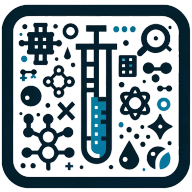In the realm of employee health and safety, drug testing plays a crucial role. However, managing drug test results while maintaining confidentiality can be a challenging task. This blog post aims to guide you through this intricate process, ensuring compliance with legal requirements and respect for individual privacy rights.
The Importance of Drug Testing in the Workplace
Drug testing in the workplace is a common practice, particularly in industries where safety is paramount. It helps employers ensure a safe and productive work environment. Drug testing can identify employees who are using illegal substances or misusing prescription medications, which can impair their ability to perform their duties safely and effectively.
However, managing these results is not as straightforward as it may seem. Employers must balance the need to maintain a safe workplace with the need to respect the privacy rights of their employees. They must also comply with various laws and regulations that govern drug testing and the handling of test results.
Understanding the Legal Landscape
The legal landscape surrounding drug testing and the management of test results is complex. Laws vary by country and even by state or province within countries. In the United States, for example, the Drug-Free Workplace Act of 1988 requires some federal contractors and all federal grantees to agree to provide drug-free workplaces as a precondition of receiving a contract or grant from a federal agency.
Employers must also be aware of laws that protect employee privacy. In many jurisdictions, employers are required to keep drug test results confidential and can only disclose them in certain circumstances. Failure to comply with these laws can result in legal penalties, including fines and lawsuits.
Best Practices for Managing Drug Test Results
When managing drug test results, it's crucial to follow best practices to ensure compliance with laws and respect for employee privacy. One of these practices is to establish a clear, written policy on drug testing. This policy should outline the reasons for testing, the procedures that will be followed, and the consequences of positive test results.
Another best practice is to ensure that test results are kept confidential. This means that results should be stored securely and only accessible to those who need to know. Employers should also be careful about who they share results with. In most cases, it's best to limit disclosure to the employee, the employer, and any relevant medical or legal professionals.
The Role of Medical Review Officers
Medical Review Officers (MROs) play a critical role in the drug testing process. These are licensed physicians who are responsible for reviewing drug test results and ensuring their accuracy. They also help to maintain the confidentiality of test results.
MROs act as an independent and impartial gatekeeper between the employer and the employee. They review the test results and any other relevant medical information before making a final determination. If the MRO determines that there is a legitimate medical explanation for a positive test result, they can report the result as negative to the employer.
Dealing with Positive Drug Test Results
Dealing with positive drug test results can be a delicate matter. It's important for employers to handle these situations with care to respect the employee's privacy and to comply with legal requirements.
If an employee tests positive for drugs, the employer should meet with the employee to discuss the results. The employer should explain the consequences of the positive test result, which may include referral to a substance abuse professional, disciplinary action, or even termination of employment.
The Future of Drug Testing and Confidentiality
As technology advances and societal attitudes towards drug use continue to evolve, the landscape of drug testing and confidentiality is likely to change. Employers will need to stay abreast of these changes to ensure that they continue to manage drug test results effectively and maintain confidentiality.
One potential change is the increasing use of hair testing for drugs. Hair testing can detect drug use over a longer period than urine testing, but it also raises new privacy concerns. Employers will need to carefully consider these issues as they update their drug testing policies.
Navigating the Future of Drug Test Confidentiality
Managing drug test results and maintaining confidentiality is a complex task, but it's crucial for maintaining a safe and productive workplace. By understanding the legal landscape, following best practices, and staying informed about new developments, employers can navigate this challenging area effectively. As we look to the future, it's clear that the importance of managing drug test results and maintaining confidentiality will only continue to grow.

